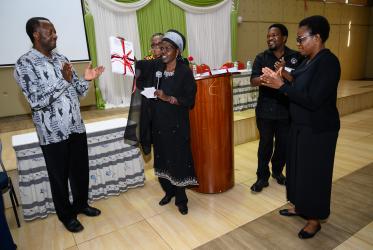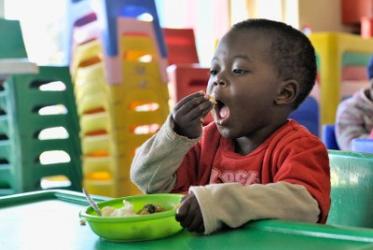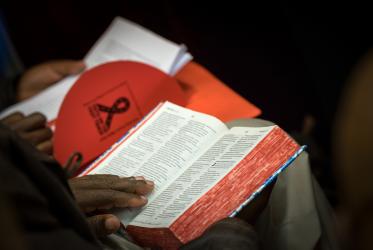Displaying 1 - 20 of 21
Faith and HIV treatment go hand in hand
06 March 2019
WCC to ring with children’s voices across the world
16 November 2018
Worrying food shortages compel faith action
19 October 2018
In Kenya, issues of young people come to the forefront
19 October 2018
“God has brought ways of defeating HIV”
31 October 2017
UN discussion focuses on women, HIV and property rights
21 March 2017
Bible study gives hope as youth reflect on HIV
02 November 2016
Zambia: “On HIV, we do not compete. We work together.”
20 October 2016















